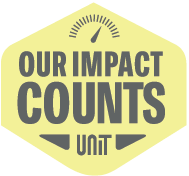5 Clever Campaigns That Put Women’s Issues Front & Center
By Alison Klein | March 12, 2015
A casual conversation with a couple of other Pegs about International Women’s Day (March 8) made me realize how many compelling campaigns we’ve seen around women’s issues this past year. To end the week as it began with attention on women, I’d like to spotlight five campaigns that address womens’ issues with a combination of creativity and what my mom would call chutzpah.
Sign Up for Pegable Post to get ideas, advice and resources on activating your Purpose sent right to your inbox.
1. Always Redefines #LikeAGirl to Promote Gender Equality
Always’ 2015 Superbowl ad featured people showing what it means to throw, run and fight “like a girl.” The women, men and boys demonstrated actions with ambivalence and a prissy flair, but the little girls gave it their all, showing fierce determination and ability.
The ad highlights the fact that girls’ confidence takes a plunge during puberty due to disparaging social influences. It ends by urging viewers to help “Make #LikeAGirl mean amazing things.” Strong women all over the world heeded the call to action, taking to Twitter to show themselves excelling in everything from basketball to karate.
As this Huffington Post article describes, the campaign saw backlash from men because there was no #LikeABoy ad. That makes me think that the assertion of equality was powerful enough to be a little threatening. That makes me think it worked?
2. FCKH8 Says Fck Domestic Violence
Love it or hate it, you can’t deny that little girls dropping the f bomb sends a powerful message. The girls in this video ask “What’s more offensive – a little girl saying ‘f*ck’ or the f*cked up and sexist way society barely lifts a finger when men raise their fists?”
Some people might flinch hearing these “potty-mouth princesses” use such colorful language, but I like the fact that their message is abrasive enough to stick.
3. We’re Not There – The Clinton Foundation [Doesn’t] Show What’s Missing
News flash – we’re not there yet when it comes to achieving gender equality. An inventive campaign by Droga5 for The Clinton Foundation’s No Ceilings initiative makes that clear by removing images of females from various ads. The promotional video features the voices of female celebrities but not video footage of the well-known women – because “we aren’t there” yet.
This unusual approach works well to visually convey that holding women back leads to a bleak future.
4. #HerDay2015 Encourages A Crucial Conversation
 3BL Media and Global Impact teamed up with charity partners CARE, World Vision, Plan USA and International Centre for Research on Women to start #HerDay2015 – a massive conversation about gender equality.
3BL Media and Global Impact teamed up with charity partners CARE, World Vision, Plan USA and International Centre for Research on Women to start #HerDay2015 – a massive conversation about gender equality.
In observance of International Women’s Day, these organizations are leading a 2-week long conversation on Twitter. Each day, the conversation centers on a different issue of importance to women and so far, topics have included job skills training, maternal health, micro lending, safe drinking water, protection from violence, vaccinations, school enrollment and more.
It’s encouraging to see so many individuals and organizations telling the world to take care of its women and girls.
5. I’m Not Bossy, I’m a Boss
The #BanBossy campaign from LeanIn and GirlScouts is built on the premise that if you can change language, you can change the world. It draws attention to the fact that while little boys are often labeled “leaders” or “ambitious,” girls are called bossy, stubborn or pushy.
The campaign is meant to help girls understand that it’s okay to be ambitious, driven, direct and assertive. There’s been some backlash against the campaign. For example, in this article from New York Magazine journalist Anne Friedman claims that ‘bossy’ is “hardly a problem big enough to warrant the combined star power of Sheryl Sandberg and Beyonce and Jennifer Garner and Condoleezza Rice.”
Respectfully, I disagree because I don’t think the campaign is actually about getting people to stop using the word bossy. Instead, I think the campaign targets “bossy” and other derisive language to give the public concrete examples of the systematic way in which girls and women are rebuked for exhibiting leadership qualities.
Enough of my gushing! What campaigns promoting the fair and equal treatment of women have inspired you? What issues do you feel don’t get enough attention? Tell me about it in the comments below.
Update!!! LeanIn announced a new initiative on March 5th – #LeanInTogether. You can learn more about it here: http://huff.to/1DfHyt8




Great point, Alison, re how the term bossy derides women’s leadership potential. I’ve never heard a man called bossy. Even the Google search definition of bossy gives the example “she was headlong, bossy, scared of nobody and full of vinegar” She, not he. Thanks for rounding up these great campaigns and for the #HerDay2015 shout-out!
Thanks for stopping by Linda. Can’t believe that definition from Google – it captures the whole problem in a single sentence!